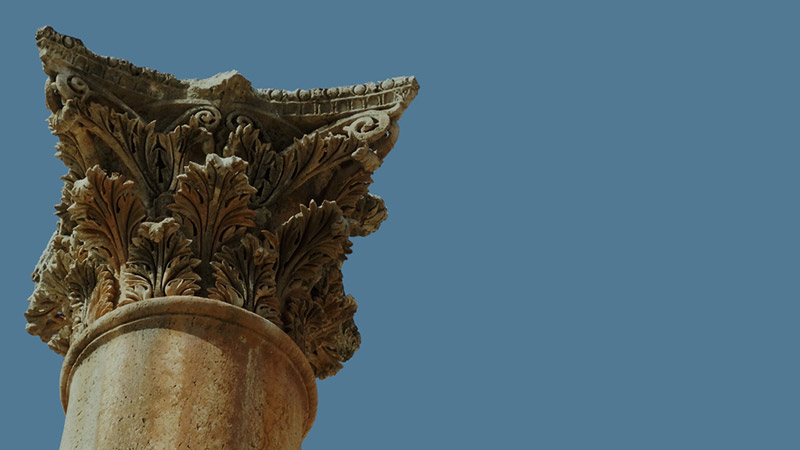Updating...
Showing 12 of 101

The Province of Asia MinorThe remains of the towns and villages of Galilee give evidence to the simple lifestyle of the Jewish people of the first century. Few were wealthy but most were hardworking people living comfortable lives as extended fami...
MORE
Rabbi and TalmidimThe people of Galilee were the most religious Jews in the world in the time of Jesus. This is quite contrary to the common view that the Galileans were simple, uneducated peasants from an isolated area. This perspective is probab...
MORE
ShephelahThe Hebrew Bible mentions the Shephelah several times. This word, meaning "low," is usually translated "lowlands" or "foothills." The term refers to a 12- to 15-mile-wide region in Judea. Though the Israelite...
MORE
Sons of LightIn Jesus' time, there were four major religious groups (or "philosophies," as Josephus, the Jewish historian of the time, called them). They were the Zealots, the Sadducees, the Pharisees, and the Essenes. It is impossible t...
MORE
GezerTravel to Gezer, and learn what it means to stand at the Crossroads.Gezer is one of the greatest tels in Israel. To stand on this magnificent tel is to stand on a part of history that existed as many as 3,000 years before our Messiah walked t...
MORE
Pagan GodsSurrounded by pagan neighbors, God's people often encountered people who worshiped other gods. Baal, Asherah, and other fertility gods played a significant role during Old Testament times.By Jesus' day, the baals were replaced by Greek a...
MORE
People Around the Sea Galilee was heavily populated in the first century, especially around the sea. The remains of the area indicate that several villages and towns had populations of more than 5,000 people. Perhaps that is one of the reasons Jes...
MORE
Pergamum (now Bergama) is located in the northern part of the Roman province of Asia Minor, along the Caicus River about ten miles from the Aegean Sea. From the third century BC until well into the fourth century AD, its kings controlled a major t...
MORE
The biblical reality that God hates sin and will eventually punish it is reinforced in the stories of the Flood, Sodom and Gomorrah, the conquest of Canaan, and the exile of the Israelites.Sabbath Law. God made the Sabbath principle central to his...
MORE
The second commandment forbade making images. Hellenistic culture glorified the human form. These two world views clashed in the days of Herod as he tried (and largely succeeded) to mold his kingdom into a Hellenistic one. He imported great number...
MORE
These niches originally held statues of the pagan gods worshipped at Caesarea Philippi. The largest is actually an artificial cave that leads to a niche in the cliff itself. This niche apparently held a statue of Pan. Above it is another niche wit...
MORE
Against the cliff and in the large cave on the left, in the third century BC, was a cult center to the fertility god Pan. This center probably was built to compete with the high place at Dan, about three miles away.The presence of the spring formi...
MORE